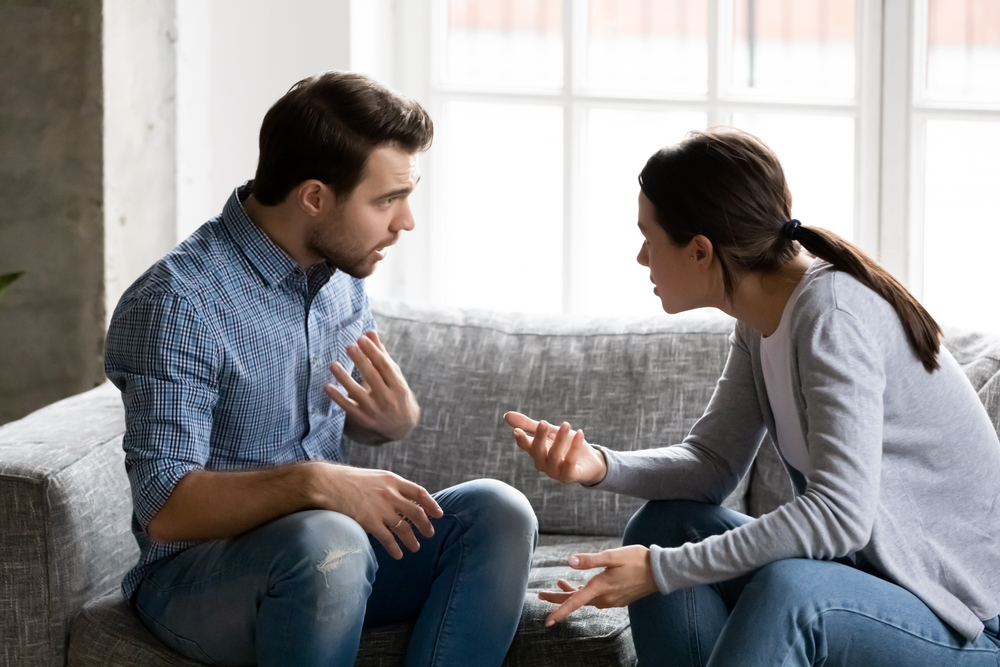It’s easy to dismiss someone’s bad behavior as cruelty or malice. But beneath the surface of many emotional blowups, passive-aggressive jabs, and cold silences is something more raw: pain that was never addressed, never processed, and never healed. People who’ve been emotionally wounded often carry their damage like armor, but sometimes that armor turns into a weapon.
This isn’t an excuse for abuse, but it is an explanation for how pain perpetuates itself. Unhealed trauma can warp how we perceive safety, trust, and love. And until that pain is seen, named, and worked through, it will leak into relationships in ways that are subtle, unconscious, and often deeply destructive.
1. They Project Their Pain Onto People They Consider Weak

Someone hurt by a parent, partner, or bully may unconsciously project that pain onto current relationships. Research by A Place of Hope provides an in-depth explanation of projection as a defense mechanism, highlighting how individuals often attribute their unwanted feelings to others, which can lead to strained relationships and lower trust.
This projection poisons trust. You’re judged not for who you are, but for who hurt them first. It’s unfair, but deeply human.
2. They Mistake Control For Connection

Someone who’s been betrayed or abandoned often equates control with emotional safety. They micromanage, manipulate, or dominate conversations—not because they’re power-hungry, but because they’re afraid of being blindsided again. It’s less about ego and more about fear dressed as authority.
The irony? Their need to control often pushes people away. And that only confirms their belief that others are unsafe.
3. They React To The Present Like It’s The Past

Hurt people carry emotional flashbacks that get triggered in the smallest moments—a tone of voice, a delay in response, a casual joke. Suddenly, they’re not in the current conversation—they’re back in the trauma. But their partner doesn’t know that—they just see a disproportionate reaction.
As confirmed by the British Journal of Psychiatry Advances, flashbacks occur because, during extreme stress, the brain prioritizes encoding survival-related sensory information over higher-order cognitive processing.
4. They Push People Away To Avoid Being Abandoned

According to Charlie Health, people with abandonment issues often push others away or create emotional distance as a defense mechanism to protect themselves from potential rejection or being left behind. This detachment serves as a form of self-protection, even though it can hinder the formation of meaningful relationships.
They don’t want to be alone—but they’re terrified of being left. So they do the leaving first. It’s self-protection that feels like punishment to everyone else.
5. They Use Humor To Mask Bitterness

As noted in The Atlantic, hurt people often use sarcasm, dark humor, or mockery as a socially acceptable release valve. As noted in a comprehensive literature review on dark humor in trauma-centered professions, humor, especially dark or sarcastic humor, is often used as a coping mechanism to manage emotional pain and stress.
They don’t know how to express vulnerability directly. So they smuggle it in through jokes. And the emotional damage still lands, just more quietly.
6. They Confuse Being Needed With Being Loved

For people who were only valued for what they could provide—care, money, stability—love starts to feel transactional. They don’t believe they’re lovable unless they’re useful. So they overextend, over-give, and then explode when it’s not reciprocated.
The resentment builds silently. Because their love was never unconditional to begin with—it was a job they never signed up for. And they’re exhausted.
7. They Shut Down Instead Of Speaking Up

As Greater Good Magazine highlights, early emotional neglect teaches people that their needs are irrelevant or dangerous to express. So when conflict arises, they don’t confront—it’s safer to retreat. Silence becomes their emotional shield.
But emotional absence feels like punishment to others. A study by Shah et al. (2021) demonstrates that childhood emotional neglect is associated with a lower likelihood of reporting high self-esteem and a greater likelihood of experiencing symptoms of depression, highlighting how emotional neglect can lead to silent but sharp wounds in relationships when individuals shut down instead of speaking up.
8. They Are Suspicious About Kindness

When you’ve been manipulated, genuine kindness feels suspect. Compliments trigger doubt, not warmth. Help triggers fear of strings attached.
This lack of trust can make them seem cold or aloof. But what they’re doing is scanning for danger. They want love—they just don’t believe it comes without a cost.
9. They Mistake Emotional Intensity For Intimacy

For some, chaos feels familiar—because that’s what love looked like growing up. They chase drama, volatility, and passionate arguments. Calmness feels boring or even threatening.
This is trauma chemistry in action. They don’t know what real connection feels like. So they chase sparks and call it love.
10. They Use Success As Emotional Camouflage

Many hurt people become overachievers—not out of ambition, but out of desperation. Success is how they prove they matter. If they stay busy enough, they don’t have to feel.
But the loneliness seeps through eventually. Accolades don’t hug you at night. And hustle doesn’t heal.
11. They Consider Apologizing A Weakness

People who’ve been shamed for mistakes often can’t apologize without crumbling. Saying “I was wrong” feels like handing someone a weapon. So instead, they double down or deflect.
It’s not pride—it’s fear. They don’t trust they’ll still be loved after admitting fault. Vulnerability feels like danger, not growth.
12. They Feel Safer In Loneliness Than Love

Love requires openness. And for the hurt person, openness once led to heartbreak. So they self-isolate—not because they don’t want love, but because they can’t risk breaking again.
They become masters of solitude. But their silence isn’t peace—it’s protection. And it comes at the cost of real connection.
13. They Don’t Even Realize They’re Doing It

Most hurt people aren’t cruel on purpose. They’re operating from unconscious scripts written in survival. To them, this behavior feels normal—even necessary.
But awareness is the first crack in the armor. Healing starts with recognizing the cycle. And choosing, moment by moment, not to pass the pain forward.
Natasha is a seasoned lifestyle journalist and editor based in New York City. Originally from Sydney, during a stellar two-decade career, she has reported on the latest lifestyle news and trends for major media brands including Elle and Grazia.


